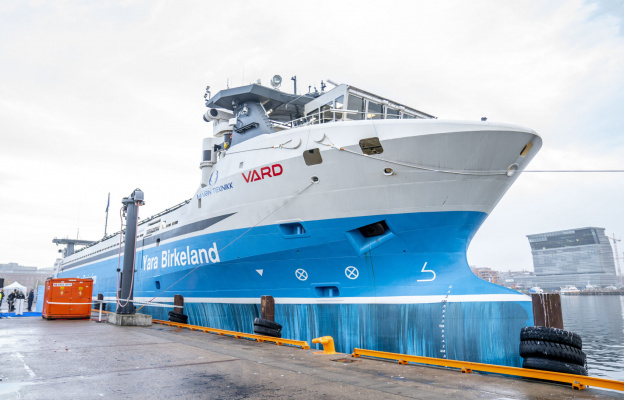The world's first autonomous electric container ship went to sea

After an almost one-year delay in construction caused by the consequences of the Covid-19 pandemic, the new generation vessel Yara Birkeland, specially designed to transport fertilizers in containers, including autonomous mode, set off on its maiden voyage.
The project was developed by order of Yara, a large Norwegian producer of mineral fertilizers, back in 2017, but the finished vessel for the customer was repeatedly postponed. The new container ship is 80 meters long and has a carrying capacity of 120 TEU.
According to Yara, the vessel will be able to carry as much fertilizer as 40,000 conventional diesel trucks in a year, while avoiding the emission of more than 1,000 tons of carbon dioxide and other harmful compounds into the atmosphere.
The main features of the vessel are: complete absence of harmful emissions into the atmosphere, which is ensured through the use of electric motors, as well as the ability to operate in an autonomous mode.
Yara Birkeland will prioritize the delivery of fertilizers from the Porsgrunn plant to the ports of Brevik and Larvik on the southwest coast of Norway. According to preliminary data, commercial operation of the vessel on these lines will begin in 2022.
For the first two years it will operate in standard mode and will be serviced by a usual crew for container ships of this size. During this time, technologies for the safe use of the vessel in autonomous mode will be finally developed.
Starting from 2024, the support of all operations of the vessel is supposed to be carried out remotely, from the coastal control center of the Massterly company, which is located in the Norwegian city of Horten.

